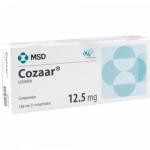What Is The Lowest Dose Of Metformin You Can Take?

When one seeks medical attention, the first and foremost task handed to the physician is to assess the patient’s medical history and then prescribe an appropriate personalized medical regimen. Be it infectious diseases, chronic conditions, or metabolic disorders, prescription of medication is only the first step of proceedings. It is equally upon the patient, as much as it is upon the doctor and healthcare professionals examining him, to stick to his or her prescribed routine and get a follow-up check done on a regular basis.
The dose is the amount of drug taken at any one time. This can be expressed as the weight of the drug (e.g. 250 mg), the volume of drug solution (e.g. 10 mL, 2 drops), the number of dosage forms (e.g. 1 capsule, 1 suppository), or some other quantity (e.g. 2 puffs). The dosage regimen is the frequency at which the drug doses are given. Examples include 2.5 mL twice a day, one tablet three times a day, and one injection every four weeks.
The total daily dose is calculated from the dose and the number of times per day the dose is taken while the optimal dosage is the dosage that gives the desired effect with minimum side effects. There are many factors taken into consideration when deciding the dose of a drug – including the age of the patient, weight, sex, ethnicity, liver and kidney function, and whether the patient smokes. Other medicines may also affect the drug dose. Adherence and compliance are pivotal in ensuring an improved health outcome for the patient especially if he is suffering from a chronic condition and needs prolonged medical attention.
What is Metformin?
Metformin is a prescription drug used to treat type 2 diabetes. It belongs to a class of medications called biguanides. People with type 2 diabetes have blood sugar (glucose) levels that rise higher than normal. Metformin doesn’t cure diabetes. Instead, it helps lower your blood sugar levels to a safe range.
Metformin is also often prescribed off-label to treat polycystic ovary syndrome (PCOS), but it isn’t currently FDA-approved for this use. Metformin oral tablet comes in two forms: immediate-release and extended-release. The immediate-release tablet is available as a generic drug. The extended-release tablet is available as the brand-name drugs Fortamet and Glumetza.
Metformin can cause mild and serious side effects. Most side effects are mild and primarily affect your digestive system. Severe side effects such as lactic acidosis are less common but require prompt medical attention.
How Metformin works
Metformin belongs to a class of drugs called biguanides. A class of drugs is a group of medications that work in a similar way. These drugs are often used to treat similar conditions.
Metformin works by:
• reducing the amount of glucose (sugar) made by your liver
• decreasing the amount of glucose your body absorbs
• increasing the effect of insulin on your body
Insulin is a hormone that helps your body remove extra sugar from your blood. This lowers your blood sugar levels.
How should I take Metformin?
Metformin comes as a liquid, a tablet, and an extended-release (long-acting) tablet to take by mouth. The liquid is usually taken with meals one or two times a day. The regular tablet is usually taken with meals two or three times a day. The extended-release tablet is usually taken once daily with the evening meal.
Metformin is usually started as 500 mg by mouth twice daily or 850 mg by mouth once daily. Depending on how well it works, the dose can be raised to a total of 2,550 mg by mouth per day split into a few doses throughout the day.
To help you remember to take metformin, take it around the same time(s) every day. Follow the directions on your prescription label carefully, and ask your doctor or pharmacist to explain any part you do not understand. Take metformin exactly as directed. Do not take more or less of it or take it more often than prescribed by your doctor.
Swallow metformin extended-release tablets whole; do not split, chew, or crush them.
Your doctor may start you on a low dose of metformin and gradually increase your dose not more often than once every 1–2 weeks. You will need to monitor your blood sugar carefully so your doctor will be able to tell how well metformin is working.
Metformin controls diabetes but does not cure it. Continue to take metformin even if you feel well. Do not stop taking metformin without talking to your doctor.
Ask your pharmacist or doctor for a copy of the manufacturer’s information for the patient.
What is the lowest dose of Metformin you can take?
The lowest dose of metformin prescribed is 500-750 mg per day and studies have shown that this improves glycemic control in non-obese type 2 diabetic patients and significantly decreased the fasting plasma glucose (FPG) and HbA1c level.
Obesity is believed to account for 80-85% of the risk of developing type 2 diabetes, while recent research suggests that obese people are up to 80 times more likely to develop type 2 diabetes than those with a BMI of less than 22.
Studies suggest that abdominal fat causes fat cells to release ‘pro-inflammatory’ chemicals, which can make the body less sensitive to the insulin it produces by disrupting the function of insulin-responsive cells and their ability to respond to insulin.
Weight reduction is an important part of therapy in all obese diabetic patients. Weight-neutral antidiabetics like metformin can be also used.
Can you break a metformin tablet into 2 halves?
Yes, The immediate-release metformin tablets can be cut in half. However, the long-acting or extended-release metformin tablets should never be cut in half. They must be swallowed whole.
Can I take 3000 mg of metformin a day?
Yes, you can take 3000 mg of metformin a day if prescribed by your doctor. Doctors can prescribe the standard-release 3000 mg/day maximum dose and an extended-release preparation of metformin (2000 mg/day maximum dose. However, the usual dose of metformin is 1000 mg once a day taken with the evening meal. Your doctor may increase your dose if needed until your blood sugar is controlled. However, the dose is usually not more than 2500 mg per day.
Metformin side effects
Even low-dose Metformin can cause mild or serious side effects. The following list contains some of the key side effects that may occur while taking metformin. This list does not include all possible side effects.
More common side effects
The more common side effects that can occur with metformin include:
• stomach problems:
o diarrhea
o gas
o heartburn
o nausea
o stomach pain
If these effects are mild, they may go away within a few days or a couple of weeks. If they’re more severe or don’t go away, talk to your doctor or pharmacist.
Serious side effects
Call your doctor right away if you have serious side effects. Call 911 if your symptoms feel life-threatening or if you think you’re having a medical emergency. Serious side effects and their symptoms can include the following:
• Lactic acidosis. Symptoms can include:
o dizziness or lightheadedness
o slow or irregular heart rate
o stomach pains, nausea, or vomiting
o tiredness
o trouble breathing
o unusual muscle pain
o unusual sleepiness
o weakness
• Hypoglycemia (low blood sugar). Symptoms can include:
o confusion
o dizziness
o drowsiness
o fast heart rate
o headache
o hunger
o irritability
o shaking or feeling jittery
o sweating
o weakness
• Low vitamin B12 levels. Symptoms can include:
o loss of appetite
o low energy
o muscle weakness
o tingling or numbness in the hands or feet
Metformin may cause other side effects. Call your doctor if you have any unusual problems while taking this medication.
If you experience a serious side effect, you or your doctor may send a report to the Food and Drug Administration’s (FDA) MedWatch Adverse Event Reporting program by phone (1-800-332-1088).





